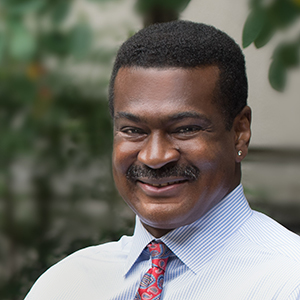Every Suicide is a Preventable Tragedy

By Angelo McClain, PhD, LICSW
Eight years ago, while serving as commissioner of the Massachusetts Department of Children and Families, I received a call from colleague Dr. Joe Gold, a renowned Boston child psychiatrist.
Joe invited me to a public engagement event, “Living in the New Normal: Better Serving Military Children.” When he heard the hesitation in my voice, he said, “The outcome of this planning event will make a significant difference in the lives of military-connected children.” He knew I couldn’t refuse an offer to help children.
During the event, I learned that more than 10,000 children in Massachusetts had a parent who was actively serving in the U.S. military in Iraq or Afghanistan. Thousands more had a parent or sibling who had recently returned after serving.
I was moved by the discussion of how these children were affected by separation from a family member and how this can be an obstacle to their emotional well-being. Over the course of two days, we identified changes needed in communities to make a difference in the lives of these children.
Subsequently, I worked more closely with Coleman Nee, secretary of Veterans Affairs. Through this work, I met an amazing young man, Kevin Lambert, an Iraq War veteran who broke his back in the war. Kevin walked with a cane and used a service dog, Ronnie, for support.
What made Kevin amazing was his willingness to use his experiences to help other veterans find a path through their own vulnerabilities. In his role as the department’s director of Special Population Programs and Services, he helped veterans with a broad range of issues. I was impressed with his suicide-prevention work and how he used his personal journey through depression and suicidal ideation to engage and inspire veterans.
Last month, I attended a meeting of the PREVENTS task force, which President Trump created to help improve veterans’ quality of life and lower their suicide rate.
The CDC says nearly 45,000 Americans died by suicide in 2016. On average, 20 service members and veterans die by suicide each day. The effects of suicide go beyond the person who takes his or her life. Suicide causes pain, suffering and loss to individuals, families and communities.
On November 11, our nation will honor its veterans. We should also take time to raise suicide-prevention awareness and find ways to reduce the stigma of mental illness. It can be a time for social workers to engage as leaders in the cause to reduce our nation’s suicide rates.
Contact Angelo McClain at naswceo@socialworkers.org.